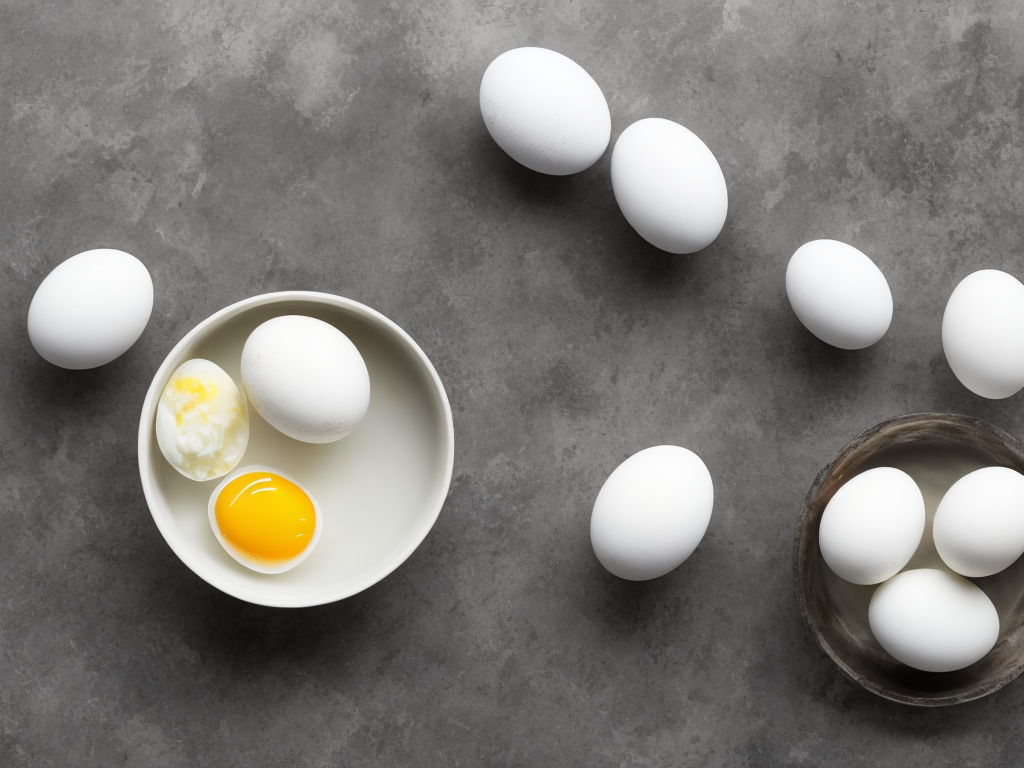
Easter is a major holiday that is celebrated around the world with various customs and traditions. One such tradition is the art of decorating Easter eggs. Many cultures create intricate designs on eggs as a symbol of new life and renewal. If you plan to decorate Easter eggs, you will need to know How to Hard Boil Eggs.
Many people aren't sure how to hard-boil an egg correctly, which can lead to overcooking or undercooking, leaving the eggs difficult to peel or with grey rubbery yolks. But with our guide, you can avoid these problems and create the perfect hard-boiled Eggs for your Easter celebration.
Material Required:
-Eggs
-Saucepan
-Water
-Salt
Instructions:
Step 1: The first step is to carefully select your eggs. Make sure the eggs you pick are not cracked or damaged in any way. Fresh eggs are harder to peel, so it's recommended to use eggs that are at least a week old.
Step 2: Next, put the eggs in a saucepan, making sure there is enough room for the eggs to move and expand slightly. Fill the pan with enough cold water to cover the eggs by at least one inch.
Step 3: Add one teaspoon of salt to the water. This will help make the eggs easier to peel later.
Step 4: Place the saucepan on the stove and heat on high until the water comes to a rolling boil.
Step 5: As soon as the water is boiling, remove the pan from the heat and set it aside. Let the eggs sit in the hot water for 12 minutes for large eggs, 10 minutes for medium-sized eggs, and 15 minutes for extra-large eggs.
Step 6: After the eggs are cooked, carefully remove them from the water using a slotted spoon or egg lifter, and transfer them to a bowl filled with ice water. This will stop the cooking process and prevent the yolks from turning gray.
Step 7: Once the eggs are completely cooled, drain the ice water and pat the eggs dry with a clean towel.
Step 8: Hard-boiled eggs can be stored in the refrigerator for up to one week.
Now that you know the steps on how to hard boil eggs to perfection, why not try your hand at making some delicious Easter egg dishes?
Bonus Tips:
-If you don't have a slotted spoon, use a regular spoon to gently lift the eggs out of the water.
-If you're making a large batch of eggs, you may want to do them in batches or use a larger pot.
-If you want to dye the eggs after cooking, wait until they have completely cooled to room temperature. You can also let them sit in a food coloring and vinegar mixture in the fridge overnight for a more vibrant color.
-To test if your eggs are cooked, spin them on a hard surface. If they spin evenly, they are cooked. If they wobble, they are undercooked, and if they don't spin, they are overcooked.
In conclusion, now you know how to hard-boil eggs to perfection, and with the added knowledge of bonus tips, you are well on your way to making Easter egg day an enjoyable experience for everyone. Use these eggs to create some delightful Easter egg dishes, or decorate them as a symbol of new life and renewal. Either way, you are sure to leave an impression with your perfectly cooked hard-boiled eggs.
 Self-Instruct
Self-Instruct